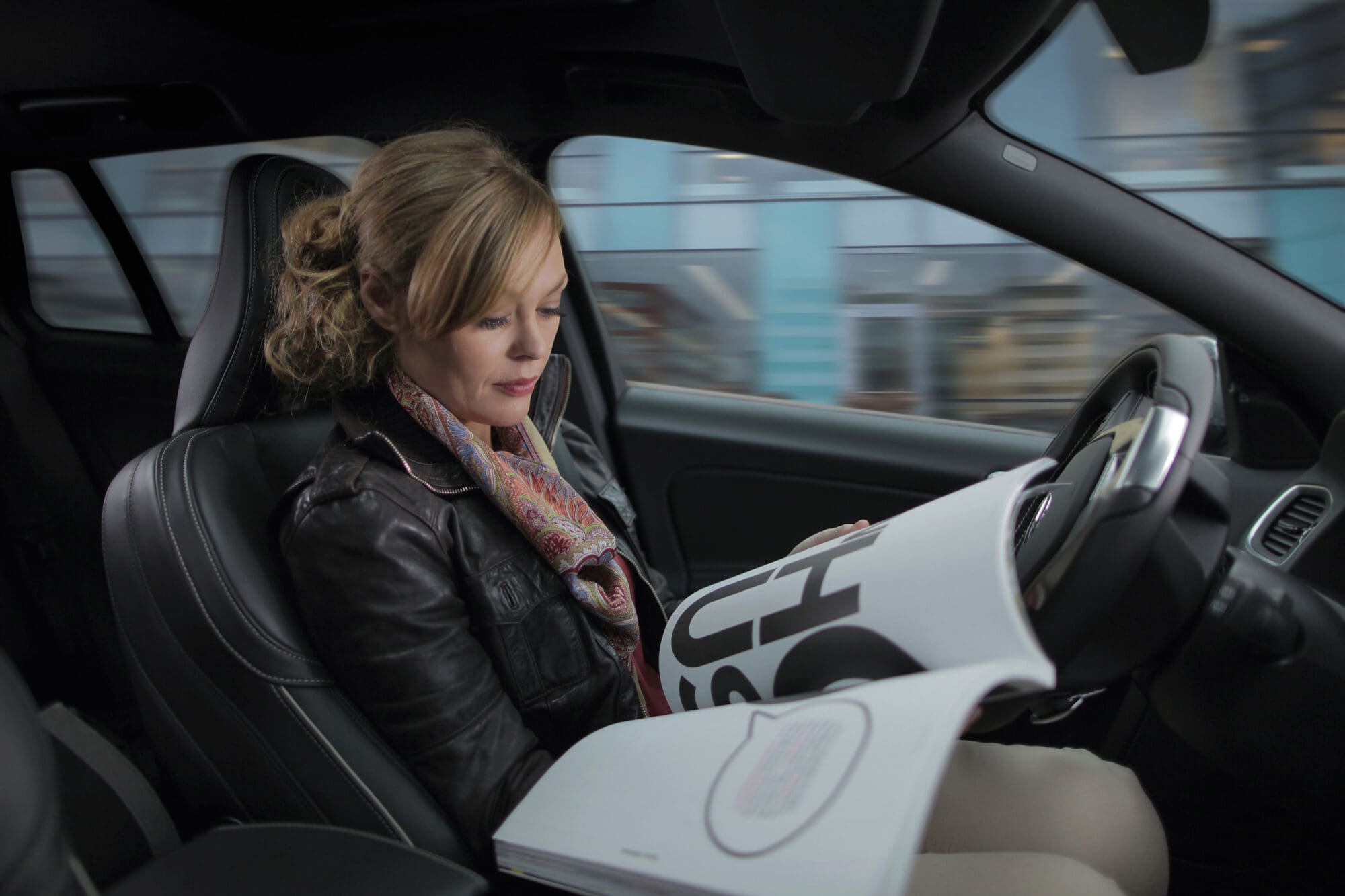
Motoring is on the brink of a brave new world of driverless cars. Autonomous vehicles are no longer the stuff of science fiction, they are almost here. So who is driving the debate about what happens next? Cue a conference in London hosted by the Association of British Insurers, insurance industry research centre Thatcham, and Volvo.
In the heart of one of the world’s busiest cities, in the middle of the morning rush-hour, there is considerable congestion inside a London conference centre. The large room is bursting at the seams, with every seat occupied and standing room only at the back. Everyone is rapt with attention as John Humphreys, of TV and radio fame, launches the big discussion. It’s all about ‘A future with autonomous driving cars’.
Much of the assembled gathering comprises motor insurance industry folk, and they’re clearly worried about what Thatcham chief Peter Shaw tells us is “the biggest revolution in vehicle safety ever”. The stakes are high. We’re informed that the insurance industry faces multi-billion pound consequences as a result of the looming new age of autonomous cars. How must it change? Can it survive? Who’s liable? And what does it all mean for motorists?
Three hours later and there has been a great deal of fascinating debate on these topics, and endless questions, but few real answers. What’s clear is that there are many issues yet to be resolved, with ongoing negotiations between government departments and industry experts taking place behind closed doors, and the clock is ticking. Next year real world trials of autonomous cars will begin on British roads, and just over three years from now, by 2020, production models are expected to be on sale.
The most interesting comment of the morning came from Håkan Samuelsson, global boss of Volvo Cars, over from Gothenburg for the event. Volvo has already made a firm commitment that with the arrival of autonomous safety features built into a new generation of cars, ‘nobody should be killed in a new Volvo from 2020.’ He tells the conference that autonomous cars should be welcomed, “It’s not just about safety, it’s also about quality of life.”
Driver assistance is not new, but this is something so much more, and manufacturers must take responsibility for a driverless car being totally safe, he says. “We do not believe it is a great thing to say that when a car is in autonomous mode it’s a product liability issue for the manufacturer. Either you say this, or you should not be in the business of making autonomous cars.” That lays down a gauntlet for other car makers to accept liability in the event of a ‘driverless’ car being involved in a collision.
There are sceptics in the audience. One mentions airbag issues and the emissions scandal, and asks how can vehicle manufacturers be trusted to make cars that drive themselves safely? Among the issues yet to be resolved is whether autonomous cars must be equipped with data recorders, to establish whether the vehicle is driving itself or being driven at the point of any incident occurring. To whom should that data be available? Should self-driving cars be required to pass some kind of driving test?
Volvo chief Samuelsson acknowledges that there are “lots of open issues”, not just liability, but also how these cars will interact with conventionally-driven vehicles. What is needed is new international guidelines, and “not a patchwork of local legislation.” Cars would need to be driven between different countries with the same rules applying.
What about ordinary motorists having a say in all this? Ian Forbes is head of the UK government’s team for Connected and Autonomous Vehicles, who will be closely monitoring next year’s autonomous vehicle programme, gathering real world feedback from the cars’ users. These demonstration projects are going to be hugely important, he said, for shaping answers to the many questions being posed.
Not least of which is whether today’s drivers will welcome being made at least partially obsolete by tomorrow’s autonomous cars. A national survey has shown that a minority of drivers will be welcoming. Some 25 per cent even said they would be happy to sleep in the car while it does the driving for them. But the majority remain unconvinced, with 70 per cent of drivers questioned saying that they found the idea of self-driving cars entirely unappealing.
© Motorworld Media 2023
Registered Office: 4 Capricorn Centre, Cranes Farm Road, Basildon, Essex. SS14 3JJ
Company Number: 8818356
Website designed by Steve Dawson
One Response
No-one to my knowledge is claiming the systems for driverless cars will be 100% perfect, all we can foresee is the systems will be less imperfect than a human driver. When the systems have a lower accident rate than the human driver, the latter has a current average of 5 deaths/day in the UK, there are few grounds for objection to driverless cars